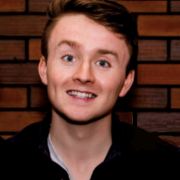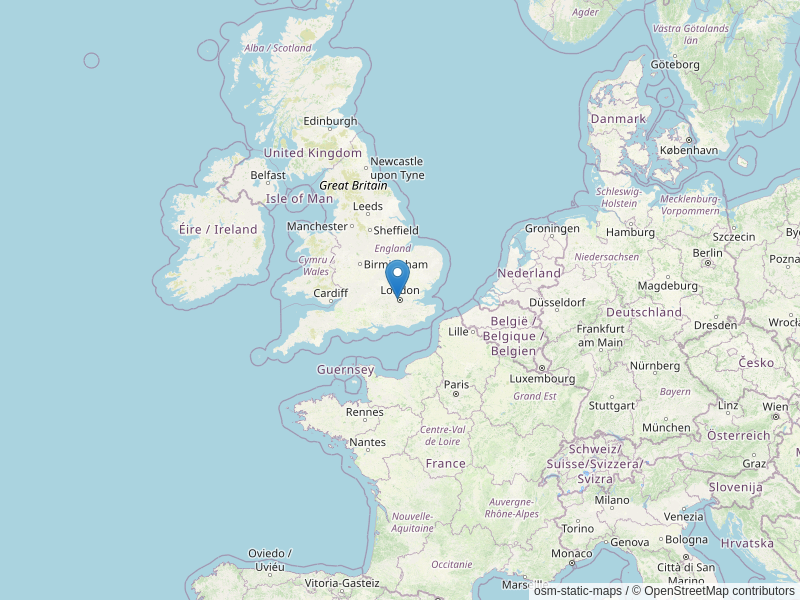In Profile - Thomas Hedley

© DAAD/Hedley
My name is Tom Hedley, and I’m currently a PhD student at Trinity College Dublin researching German modernism and modern mathematics. With the generous support of the DAAD, I completed an MA in German literature at the Friedrich-Schiller-Universität Jena in 2019. I’m an enthusiastic sea swimmer, avid reader and fan of Scandinavian political-crime shows!
What does a typical day in your job look like? Is there any link/relation to German/ Germany?
PhD work, while fascinating if you like your topic, can be a fairly individual experience, which for me involves lots of reading, note-taking, writing and gallons of coffee! Sometimes, however, I get the opportunity to teach German literature and language to younger students, which can often be the highlight of the week! German is, of course, central to my research and thus my entire academic life — I work on German literature between 1900 and 1930 and (mostly German-language) mathematical writings from that era.
If you are teaching, what sparked your interest in education and teaching? Especially in teaching abroad?
Even as a schoolchild I was always interested in becoming a teacher, but I always imagined secondary schools. When I got to university, however, I fell in love with research at university level, so I decided to stick around in the hopes of eventually teaching in academia. I would also be very happy to engage with school pupils as well, especially to help bridge the gap between school and university. I completed a year as an English language assistant in Erfurt, Germany (2014-15), which was a brilliant way of confirming that teaching really was for me.
Which experiences have you gained during your stay in Germany and how has it influenced your career path/ personal development?
My experiences in Germany were very formative. When I completed my MA in Jena with DAAD support, a whole new academic system was opened up to me, and that degree was responsible for a lot of developments in my PhD ideas. Studying and socializing completely through German was also an indispensable way to build on my German language skills, but more importantly I made a lot of life-long friends that mean a lot to me!
Which city in Germany have you been studying/researching and what was/were the reason/s for choosing it?
I completed my MA in Jena at the local university, which I chose for its very renowned Germanistik department and openness to interdisciplinary research. The city itself is also a case-study in interdisciplinary thinking, as it showcases a long literary history (from the Jena Romantics, Gerhard Hauptmann to Christa Wolf) and is home to world-famous scientific hubs, such as Carl Zeiss. Moreover, its location is right in the centre of Germany, in its so-called “green heart” of the state of Thüringen — the surroundings make it unsurprising that it was such a focal point for the Romantic era!
Who has inspired you the most in your career and why?
My PhD supervisor at Trinity College, Dr Caitriona Leahy, who has known me since I arrived as an 18-year-old undergraduate to the German department, is my main source of inspiration! Aside from being a fascinating and creative voice in her academic field of German literature, she has also been a major source of support and encouragement — far beyond what is normally to be expected! I can only hope to be able to pass on the same level of support and advice to my own students in the future.
What do you like in or about Germany? Can you give an example?
In terms of education, I really admire Germany’s commitment to access to education for all, regardless of financial position. The fact that university study is essentially free to all in Germany (regardless of nationality) is something a lot of countries could learn from. More broadly, in Germany I love how the expansive train network allows you visit different places across the country (and in neighbouring countries) so easily — living on an island like Ireland with a less developed rail system makes that a little harder! I also miss the beer culture of Germany and how hundreds of small, local breweries have their own traditions and techniques that make their produce so unique!
Is there a (German) book or (German) author or maybe German film you always return to? If yes, why?
My favourite German film is one that I am studying in my PhD research: F.W. Murnau’s Der letzte Mann — a silent film from 1924 and groundbreaking cultural artifact from the Weimar Republic. The film is the first example in cinema history of a moving camera. While this seems so normal now, the technique was pioneered by Murnau and sometimes involved strapping a camera to a bicycle and cycling it through the film sets.
Which is your favourite city/ place in Germany and which in the UK/Ireland and why? Are there any similarities or differences?
My favourite city in Germany is Leipzig. It has all the dynamic, exciting culture of a bigger city like Berlin but it smaller, more unique and less exposed to mass tourism. Its green surroundings make it such a fantastic and relaxing place to visit, even for a short time. A nice comparison would be Cork in Ireland, which has avoided the over-tourism of Dublin and has its own fascinating food and drink scene and a generally more relaxed way of life.
What was the most ‘German’ experience you have had in the UK/Ireland so far? How did you react? What did it remind you of?
Germany and Ireland are very different places, so it’s rare to have a “German” moment in Ireland without being in a crowd of Germans! During the Covid-19 pandemic, however, we were all forced in Ireland to adopt more of an outdoor socializing culture, such as in parks and other green spaces, which reminded me of Germany, where “Grillen im Park” is much more normal. I’m glad Ireland has finally caught the idea!
Can you cook a German dish without a recipe? If so, which one and where have you learned it?
While I haven’t adopted much of a German food habit, I have somewhat “irishified” red cabbage — quite a traditional German ingredient!
What advice would you give to students who are thinking of choosing your field of study/research?
If my research has taught me anything, the most interesting results come along when you think outside the box, be bold in your ideas and don’t be afraid to go against “traditional” assumptions.
What advice would you give to UK/Irish students and researchers who are thinking of pursuing research abroad in Germany?
If you are thinking of spending time in Germany, use the resources of the DAAD! Aside from generous funding that you can apply to, I found that the DAAD was always on hand for expert help and advice, and their website is a brilliant way to explore the German university system, its courses, degrees and research areas!
Are you interested in Studying in Germany with a DAAD scholarship? Please find here the link to the DAAD Scholarship Database.









